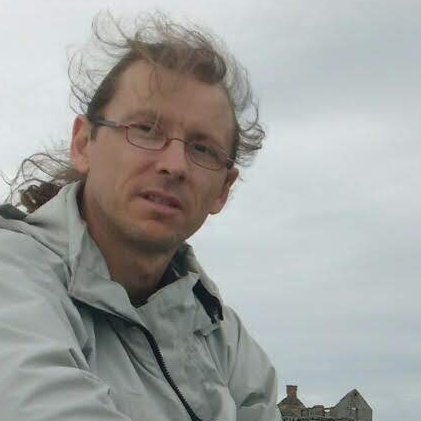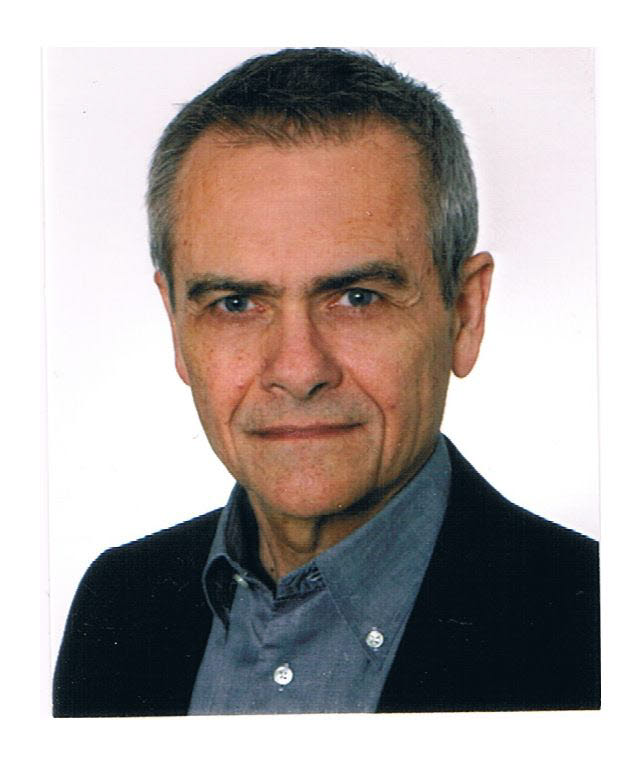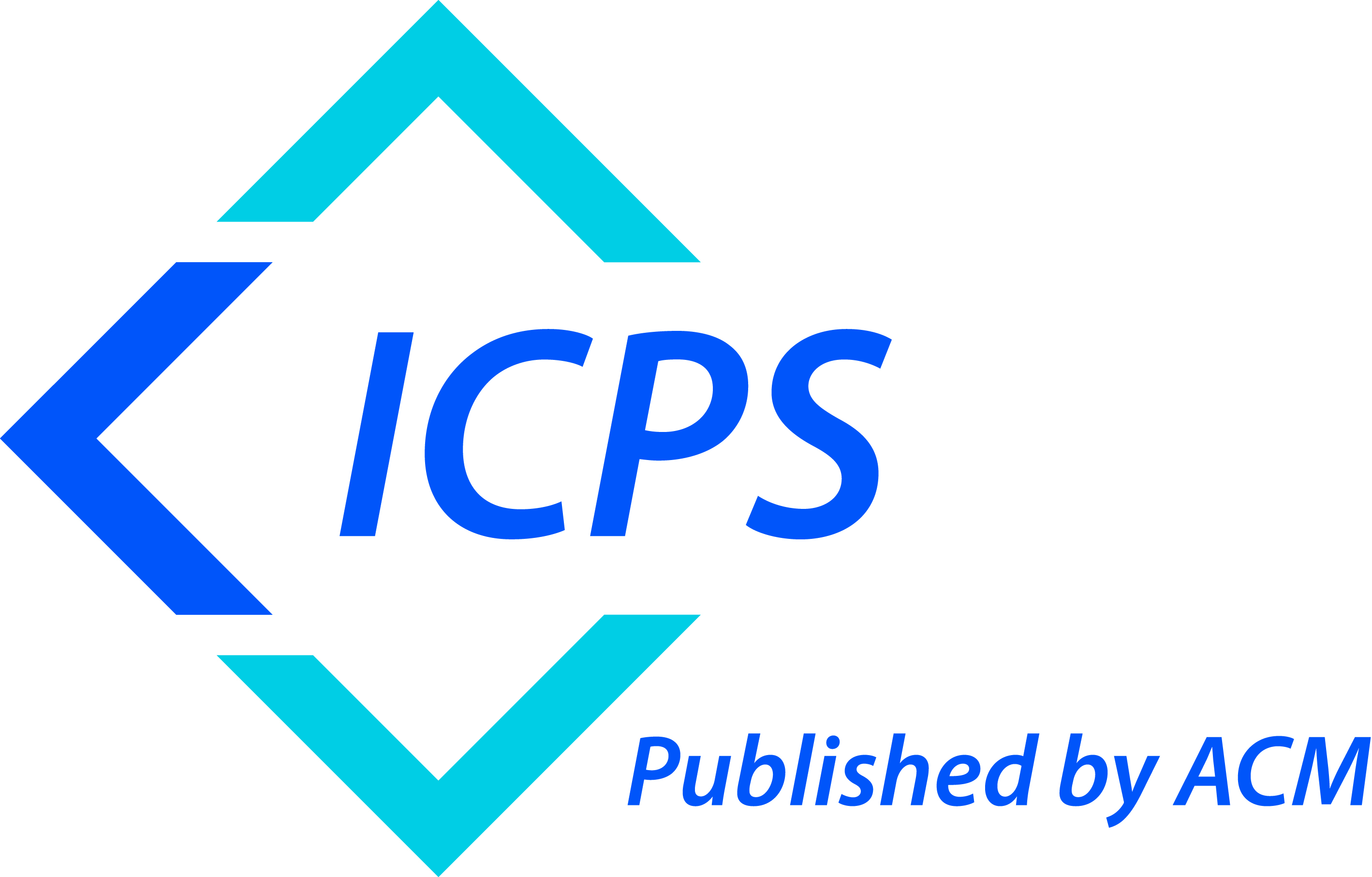
Central European Cybersecurity Conference
ZITiS, Zamdorfer Straße 88, D-81677 Munich, Germany 🇩🇪

ZITiS, Zamdorfer Straße 88, D-81677 Munich, Germany 🇩🇪
The third Central European Cybersecurity Conference – CECC 2019 aims at establishing a venue for the exchange of information on cybersecurity and its many aspects between academics and practitioners in central Europe. CECC 2019 encourages the dialogue between researchers of technical and social aspects of cybersecurity, both crucial in attaining adequate levels of cybersecurity. Complementary contributions dealing with its economic aspects as well as any legal, investigation or other issues related to cybersecurity are welcome, too.
12
NOV
The conference proceedings have been published in ACM DL.
29
AUG
The conference program (PDF document) has been published.
5
AUG
Online registration is available.
Download conference program as PDF document.

Fake news and digital manipulations at the age of modern technology
Tal Pavel is Founder and CEO of CyBureau - The Cyber Empowerment Center in Romania and Israel. He is also Head of Cybersecurity Studies – Information Systems Program, School of Economics and Management at the Academic College of Tel Aviv-Yaffo, Lecturer at several academic institutions in Israel, expert and researcher of the internet and cyber threats in the Middle East and the entire world. He holds a PhD in Middle Eastern Studies from Bar-Ilan University in Israel. He served as a keynote speaker at international conferences and has been interviewed as an expert cyber commentator on all major Israeli media outlets.

Obfuscated Android application development
Jean-Francois Lalande is Professor at CentraleSupélec, in the Inria project CIDRE of the IRISA laboratory. His areas of interest are the security of operating systems, the security of C embedded software (e.g. smart cards) and the security of Android applications. He works on malware analysis, access control policies, intrusion detection tools and software code analysis. He also actively develops tools for analyzing statically or dynamically Android applications that have malicious behaviors.

Digital Forensics vs. Due Process - Conflicting Standards or Complementary Approaches?
Uwe Ewald is the founding Executive Director of the International Justice Analysis Forum (IJAF), focusing on the analysis of digital data in evidentiary criminal proceedings and the digitisation of the (international) criminal justice process.
He conducted criminological and legal research and held teaching positions at different universities, at Humboldt and Free University Berlin, Germany, at Simon Fraser University, Vancouver, Canada, and the Max Planck Institute for Foreign and International Criminal Law in Freiburg, Germany. Between 2002 and 2018 he taught Security Governance in the European Union, and Critical Assessment of Applied Empirical Research Methods at the Ruhr-Universität Bochum, Department of Criminology and Police Science. From 2002 till 2009 he conducted computer-aided content analysis of digitized evidentiary mass data at the Office of the Prosecutor at the UN International Criminal Tribunal for the Former Yugoslavia.
Due to his legal background (Dr. iur) he cooperates as an attorney and analyst at the law office Dost-Roxin and Marson, Berlin, and advises German parliamentarians regarding the implementation of European legislation at the Saxon State Parliament, Dresden, Germany with particular focus on digitsation in the Area of Freedom, Security and Justice. As a Certified Expert for Digital Forensic Big Data Analysis he is a Member of the German Expert Association. He is trainer for content analysis Software Provalis.
4
JUL
Submission deadline (extended)
29
JUL
Author notification
25
AUG
Poster submission deadline
16
SEP
Camera-ready
The conference is devoted to presenting and exploring scientific and technological advancements and original innovative applications in the field of cybersecurity. Topics for this conference include, but are not limited to:
CECC 2019 proceedings will be published by Association for Computer Machinery (ACM) in the ACM Digital Library within its International Conference Proceedings Series (ICPS).

The official language of the conference is English. Papers are limited to 6 pages.
All papers must be original and not simultaneously submitted to another journal or conference. The following paper categories are welcome:
Papers submitted to CECC 2019 have to use the ACM SigConf template. Please, read template instructions carefully before submitting the paper.
Authors of accepted posters should prepare A1 sized posters (portrait or landscape) for the poster exhibition. Other designs may be considered.
The quality of the research papers will be assessed based on its originality, significance and clarity.
All submitted research papers will undergo a double-blind reviewing process. Please, make sure that submitted papers do not contain author names or obvious self-references.
Each paper will be assigned a co-chair and reviewed by three reviewers. Afterwards, a discussion will be held by co-chairs and reviewers to determine the outcomes of the peer-review.
Submission of a paper implies that at least one of the authors will register and present the paper at the conference if the paper is accepted. If an author has more than one accepted paper, each additional accepted paper costs the same fee as the first.
Submit research papers using the CECC 2019 submission system. Submit posters to cecc2019-0@easychair.org
Regular registration
330 €
Co-Author Special
235 €
Student registration
165 €
The regular registration fee includes entrance to all conference sessions and the social events. The regular registration fee does not include the accommodation.
Cancellation fee is € 50. Substitution is welcome. No cancellation will be allowed after 30 October 2019.
Early-bird registration fees must be paid before 30 September 2019.
Students have to show a valid student ID at the conference site. The student registration fee includes the entrance to all conference sessions but not the social events. The student registration fee does not include the accommodation.
Registration fees must be paid in advance via bank transfer. Please make sure all bank fees are covered by the submitting account and that the payment is free of charge for the receiver account.
Account holder: UM FVV, Kotnikova 8, 1000 Ljubljana, Slovenia
IBAN: SI56 0110 0600 0006 231
SWIFT-CODE: BSLJSI2X
Reference number: SI00 6007-2017
Please mention your first and last name on the bank transfer.
Participants receive the original copy of the receipt on the first day of the conference.
Mordechai Guri, Ben-Gurion University of the Negev (Israel)
Christian Hummert, ZITiS (Germany)
Jean-Francois Lalande, CentraleSupélec / Inria (France)
Olaf Maennel, Tallinn University of Technology (Estonia)
Simon Vrhovec, University of Maribor (Slovenia)
Luca Caviglione, IMATI - CNR (Italy)
Michal Choras, University of Science and Technology (Poland)
Marijke Coetzee, University of Johannesburg (South Africa)
Boštjan Delak, Faculty of Information studies in Novo mesto (Slovenia)
Pavlos Efraimidis, Democritus University of Thrace (Greece)
Tobias Eggendorfer, University of Applied Sciences Ravensburg-Weingarten (Germany)
Petra Grd, University of Zagreb (Croatia)
Piroska Haller, University of Medicine, Pharmacy, Sciences and Technology of Tg. Mures (Romania)
Martin Hell, Lund University (Sweden)
Marko Hölbl, University of Maribor (Slovenia)
Martin Gilje Jaatun, University of Stavanger (Norway)
Georgios Karopoulos, Joint Research Centre (Italy)
Peter Kieseberg, St. Pölten University of Applied Sciences (Austria)
Jacques Klein, University of Luxembourg, SnT (Luxembourg)
Oksana Kulyk, ITU Copenhagen (Denmark)
Romain Laborde, University of Toulouse (France)
Yair Levy, Nova Southeastern University (USA)
Shujun Li, University of Kent (UK)
Brad Malin, Vanderbilt University (USA)
Rodrigo Miani, Universidade Federal de Uberlândia (Brazil)
David Modic, University of Ljubljana (Slovenia)
Pal-Stefan Murvay, Politehnica University of Timisoara (Romania)
Tal Pavel, CyBureau (Israel)
Kaja Prislan, University of Maribor (Slovenia)
Peter Y. A. Ryan, Université du Luxembourg (Luxembourg)
Gerardo Simari, Universidad Nacional del Sur in Bahía Blanca and CONICET (Argentina)
Kai Simon, Kai Simon Consulting (Germany)
Daniel Spiekermann, FernUniversitaet in Hagen (Germany)
Igor Tomičić, University of Zagreb (Croatia)
Edgar Weippl, SBA Research (Austria)
Steffen Wendzel, Worms University of Applied Sciences (Germany)
Dirk Westhoff, Offenburg University of Applied Sciences (Germany)
Christos Xenakis, University of Piraeus (Greece)
Nicola Zannone, Eindhoven University of Technology (Netherlands)
Aleš Završnik, Institute of Criminology at the Faculty of Law Ljubljana (Slovenia)
Igor Bernik, University of Maribor (Slovenia)
Bela Genge, University of Medicine, Pharmacy, Sciences and Technology of Tg. Mures (Romania)
Joerg Keller, FernUniversitaet in Hagen (Germany)
Blaž Markelj, University of Maribor (Slovenia)
Wojciech Mazurczyk, Warsaw University of Technology (Poland)
Anže Mihelič, University of Maribor (Slovenia)
Anita Bašelj, University of Maribor (Slovenia)
Igor Bernik, University of Maribor (Slovenia)
Blaž Markelj, University of Maribor (Slovenia)
Aleksander Podlogar, University of Maribor (Slovenia)
Simon Vrhovec, University of Maribor (Slovenia)